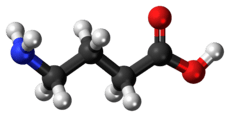GABA Powder Daily Dose Calculator
Enter your weight, select the unit and dosage level to calculate your daily dose and GABA amount.
Notes on the formula used on this calculator
*for these calculations we used dosage suggestions (low, med & high) found here: https://pubmed.ncbi.nlm.nih.gov/30676163/ . This study included these dosages for 14 days. I have personally taken a daily dose for months and am aware of people who do this for years. See Safety and Toxicity information below.
The GABA Powder referenced in these calculations is 750mg per 1/4 TSP from Bulk Supplements.
*I have no affiliation with Bulksuppliments.com. I just like and have been using their products for years.
GABA (Gamma-Aminobutyric Acid) is a naturally occurring neurotransmitter in the brain that is also available as a supplement. It’s commonly used to promote relaxation, improve sleep, and reduce anxiety. Generally, GABA supplements are considered safe.
Resource link: United States Pharmacopeia (USP) Safety Review of Gamma-Aminobutyric Acid (GABA)
Safety and Toxicity of GABA Supplements
-
General Tolerance:
- GABA is well-tolerated and easily found OTC.
- Mild sedative effects such as drowsiness, fatigue, or slowness of breath have been reported in some cases.
-
High Doses:
- Toxicity studies specific to GABA supplements are lacking, meaning there is no well-documented evidence of toxic doses or long-term harm from excessive consumption in humans.
-
Regulation and Warnings:
- Because GABA supplements are not tightly regulated by the FDA, the purity and dosage recommendations may vary by brand.
- High doses or long-term use have not been extensively studied in humans, so there is no well-established upper safety limit for GABA.
-
Possible Risks in Vulnerable Groups:
- People with certain conditions such as epilepsy or on medications affecting the GABAergic system (like anti-seizure medications or benzodiazepines) should consult a healthcare provider before taking GABA supplements, as they may interfere with neurological balance.
-
Synthetic GABA Analogs:
- Medications that mimic or influence GABA in the brain, such as gabapentin or pregabalin, can have side effects, but they are different from natural GABA supplements. These analogs can have toxicity at high doses, but they are much stronger than typical GABA supplements.
Conclusion:
There is no significant evidence of GABA toxicity at common dosages.


